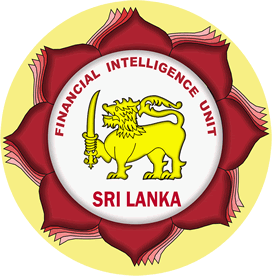In terms of Section 33(j) of the Financial Transactions Reporting Act, No. 06 of 2006 (FTRA), “Accountants” are required to comply with Anti Money Laundering and Countering the Financing of Terrorism (AML/CFT) measures when they prepare for or carry out transactions for their clients in relation to any of the following activities;
- buying and selling of real estate;;
- managing of client money, securities or other assets;
- management of bank, savings or securities accounts;
- organization of contributions for the creation, operation or management of companies; and
- creation, operation or management of legal person or arrangements and the buying and selling of business entities.
As per Rule 2(d) of the Designated Non-Finance Business (Customer Due Diligence) Rules, No.1 of 2018 (CDD Rules for DNFBPs) Customer Due Diligence (CDD) measures need to be carried out by the accountants, who prepare for or carry out the above mentioned transactions for their clients, in prevention of Money Laundering and Terrorist Financing (ML/TF) activities.
What are the Legal Obligations for Accountants under AML/CFT?
-
Appointing a Compliance Officer (CO):
According to the Rule No. 41 of the CDD Rules for DNFBPs, accountants real estate agents are required to appoint a senior management level officer as the CO to deal with AML/CFT related matters in your entity. The appointment of CO is required to be informed to the Director, FIU using 'CO Declaration Form’.
The duly filled CO Declaration Form should be submitted to the FIU;
| Address | Director, Financial Intelligence Unit Central Bank of Sri Lanka No. 30, Janadhipathi Mawatha Colombo 01 |
| fiudnfbp@cbsl.lk |
-
Assessing the ML/TF Risk of the Accountants:
As per the Rule No. 6(a) of the CDD Rules for DNFBPs, accountants have to conduct an assessment on ML/TF risk of the entity based on the professional judgment, knowledge and expertise of the business management. Further, risk assessment of the entity should be done based on the types of clients, types of services, types of payment methods that accountants are having and the geographical location.
Technical assistance to conduct ML/TF Risk Assessment of your entity could be obtained from FIU-SL. Please contact FIU-SL on 011 2398725.
-
Having AML/CFT Policy and Procedures for Accountants:
Rule No. 6(g) of the CDD Rules for DNFBPs indicates the requirement to develop an AML/CFT Policy for the entity. Once ML/TF risk of the entity is assessed, it is required to establish a policy which includes procedures and controls to prevent, detect and manage the possible ML/TF risks.
Technical assistance to prepare the AML/CFT Policy for your entity could be obtained from FIU-SL. Please contact FIU-SL on 011 2398725.
-
Conducting Customer Due Diligence (CDD):
In terms of Part II of the CDD Rules for DNFBPs, accountants are required to conduct CDD measures when they are engaging in designated activities under Section 33 (j) of the FTRA.
The following minimum information should be collected to conduct CDD on a client/ beneficial owner;
- the full name;
- permanent residential or mailing address;
- occupation, name of employer, business or principal activity;
- an official personal identification number or any other identification document that bears a photograph of the customer or beneficial owner such as the national identity card, passport or driving license;
- date of birth;
- nationality;
- source of funds;
- purpose of transaction;
- telephone numbers (residence, office or mobile).
Once collected the above information, the identity of the client should be verified. The accountants are required to verify the identity of the customer using reliable, independent source documents, data or information (10(a) of the CDD Rules for DNFBPs).
Further, information obtained on point (d) of the above should be verified by obtaining the relevant original document and a copy of the document should be taken.
-
client Risk Profiling
According to the Rule No. 6(c) of the CDD Rules for DNFBPs, real estate agents are required to profile customers according to the risk level based on the collected information. In this customer risk profiling customer’s geographical location, products and services, transactions or delivery channel of a particular individual/corporate customer should be considered.
Technical assistance on customer risk profiling could be obtained from FIU-SL. Please contact FIU-SL on 011 2398725.
-
Conducting Enhance Customer Due Diligence
According to Rule No. 16 of the CDD Rules for DNFBPs, accountants are required to conduct Enhanced Customer Due Diligence (ECDD) in addition to the measures specified under Rule 11 of the CDD Rules for DNFBPs for high risk clients or high-risk business relationships or transactions involved.
Eg: If a client identified as a Politically Exposed Person (PEP) or having non-face-to-face business relationship with the client or client is profiled as a high-risk client then it is required to conduct ECDD for such clients.
Accountants should take following measures when conducting ECDD;
- obtain additional information of the customer.
- obtain approval from the senior management before establishing a business relationship with such customers (In the case of an existing customer, for continuing such business relationship with the customer).
- obtain additional information on the intended nature of the business relationship.
- regularly update the identification data of the customer/beneficial owner.
- enquire and record the reasons for prospective or performed transaction.
-
Screening against the United Nations Security Council Resolutions (UNSCR) lists:
Accountants are required to cross check clients’ or beneficial owners’ details against persons and entities designated by the UNSCR which have been issued in compliance with the United Nations Act, No. 45 of 1968, with respect to any designated list on targeted financial sanctions related to terrorism and terrorist financing and proliferation of weapons of mass destruction and its financing.
Click here for updated lists.
Technical Assistance on screening customers against the UNSCR lists could be obtained from FIU-SL. Please contact FIU-SL on 011 2398725.
-
Reporting Suspicious Transactions (STRs)
As per the Section 7 of the FTRA, accountants are required to report any transaction(s) or attempted transaction(s) which has reasonable grounds to suspect that it may be related to the commission of any unlawful activity or any other criminal offence.
- STR should report to FIU-SL as soon as practicable, after forming a suspicion or receiving the information, but no later than two working days of forming a suspicion.
- STR could be submitted by way of mail, telephone which should be followed up in writing within twenty-four hours, fax or e-mail.
- STR should be contained a statement of the grounds on which the real estate agent holds the suspicion and signed or authenticated by the real estate agent.
- STRs should be submitted using Schedule V of the Suspicious Transactions (Format) Regulations of 2017 to report STRs. .
Whenever, forming a suspicion of ML/TF, and it reasonably believes that conducting the CDD measures would tip off the client, it may proceed without conducting the CDD measures, but shall immediately file an STR.
-
Other AML/CFT Measures
- Training and Awareness Programmes: Accountants are required to provide training sessions regularly on AML/CFT compliance policies and procedures to the managing partners, senior management, employees, agents or any other individuals authorized to act on behalf of the entity. The compliance officer once appointed, is responsible on conducting regular AML/CFT trainings to the other staff and employees.
- Employee Screening: Procedures should be adopted to screen employees before recruiting/hiring to make sure they are not connected to any activities relating to ML/TF.
- Independent Auditing: An independent audit should be carried out to ensure the AML/CFT functions within the entity.
-
Raise the Red Flag
A set of possible suspicious indicators are as follows;
- Client is secretive or evasive about who they are, the reason for the transaction, or the source of funds.
- Client avoids personal contact without good reason.
- Client refuses to provide information or documentation or the documentation provided is suspicious.
- Unexplained urgency, requests for short cuts or changes to the transaction particularly at last minute.
- Abandoning transaction and/or requests to make payments to third parties or back to source.
- Requests that do not make sense in the context of the client’s profile.
- Any situation where personal identity is difficult to determine.
- Large lump-sum payments to or from abroad, particularly with countries known or suspected to facilitate money laundering activities.
- Forming companies or trusts with no apparent business purpose.
- Clients seeking investment management services where the source of funds is difficult to pinpoint or appears inconsistent with the client’s means or expected behavior.
- Purchasing at prices significantly below or above market.
-
What Should You Know?
Legislations relating to Accountants
- Financial Transactions Reporting Act, No. 6 of 2006
- Suspicious Transactions (Format) Regulations of 2017
- Rules for Designated Non-Finance Business (Customer Due Diligence) Rules, No. 1 of 2018. - Extraordinary Gazette No 2053/20, January 10 of 2018
- Guideline, No. 5 of 2018 on Implementing United Nations (Sanctions in relation to Democratic People’s Republic of Korea) Regulations of 2017
- Guidelines, No. 7 of 2018 on Implementing United Nations (Sanctions in relation to Iran) Regulations No. 1 of 2018
- Guidelines for Designated Non-Finance Businesses on Suspicious Transactions Reporting, No. 01 of 2019
- Guidelines for Designated Non-Finance Businesses on Identification of Beneficial Ownership, No. 02 of 2019
- Guidelines on Identification of Politically Exposed Persons, No. 03 of 2019
- Guidelines on Anti-Money Laundering and Countering the Financing of Terrorism Compliance Obligations for Accountants and Trusts or Company Service Providers, No. 02 of 2020
Be Equipped
-
Training Materials
-
Need a Training on AML/CFT?
| Ms. R M M P Rathnayake | Assistant Director | Tel : 011 2477581 E-mail: fiudnfbp@cbsl.lk |
-
Need More Information?
| Mr. A W U C N Bandara | Senior Assistant Director/ Head of DNFBP Division |
Tel : 011 2398766 E-mail: fiudnfbp@cbsl.lk |
Special Notices
All Institutions engaged with FIU-Sri Lanka on Anti Money Laundering and Countering the Financing of Terrorism (AML/CFT) will be kept informed of any changes to the legislation or reporting procedures, trends, and other relevant developments. |

